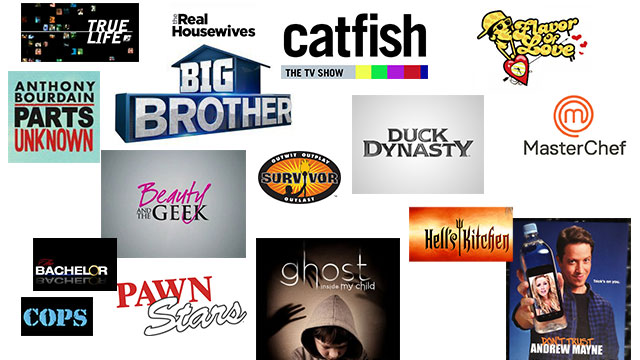Tube Ninja Insights
Your go-to source for the latest trends and tips in video content creation.
Reality TV: Where Drama Meets Dinner Table
Dive into the world of reality TV, where sizzling drama unfolds and dinner table secrets are revealed—don't miss the chaos!
The Psychology of Reality TV: Why We Can't Look Away
The allure of reality TV can be attributed to its psychological impact on viewers. Shows often present extreme situations and real-life drama, allowing audiences to engage with authentic emotions and experiences. This creates a sense of connection and empathy, as viewers see themselves reflected in the contestants' struggles and triumphs. According to psychological theories, such as social comparison, viewers may feel validated or superior as they watch others navigate challenges, reinforcing their own life choices and circumstances. Moreover, the unpredictability of reality TV keeps viewers on the edge of their seats, making it difficult to look away from the unfolding drama.
Additionally, reality TV caters to our innate curiosity and desire for escapism. The genre invites us into the lives of others, often showcasing lifestyles, conflicts, and resolutions that feel both foreign and intriguing. This voyeuristic appeal taps into the human tendency to seek out new experiences through others' narratives. Viewers can indulge in the excitement and chaos from the comfort of their own homes, leading to a deeper engagement with the content. Ultimately, the combination of empathy, relatability, and escapism forms a powerful mix, making it clear why we can't look away from the captivating world of reality television.

Behind the Scenes: How Reality TV Producers Create Drama
Behind every gripping moment on reality TV lies a meticulous process orchestrated by producers who are experts in creating drama. These producers often use techniques such as storyboarding and script outlines to map out key moments that will engage viewers. By understanding the psychology of their audience, they carefully curate situations that are likely to spark conflict. Producers may also hold casting interviews with an eye on personalities that contrast well, ensuring that tensions naturally arise. As a result, these dynamics not only captivate viewers but also encourage organic interactions among cast members.
Furthermore, the editing phase is crucial in shaping the narrative and enhancing the drama that unfolds. Editors sift through hours of footage to highlight the most dramatic moments, often employing techniques like slow motion or dramatic music to amplify climactic scenes. Producers may also include confessionals, where participants share their unfiltered thoughts, adding a layer of intrigue and context. The combination of careful planning, strategic storytelling, and savvy editing culminates in a compelling viewing experience, proving that what viewers see is often the result of a highly orchestrated production process.
Dinner Table Conflicts: How Reality TV Reflects Real-Life Family Dynamics
Dinner table conflicts have long served as a microcosm of family dynamics, and reality television offers a compelling lens through which these interactions are magnified. Shows like 'The Real Housewives' and 'Survivor' reveal not just the dramatic clashes over food, but deeper issues such as betrayal, trust, and competition. As viewers, we become invested in these conflicts, recognizing parallels in our own family gatherings. The heightened emotions displayed are akin to those experienced in any family meal, showcasing how differing opinions and personalities can lead to heated discussions.
Moreover, reality TV often exaggerates these conflicts to entertain, but they also provide vital insights into real-life family dynamics. For instance, the dinner table is often depicted as a battleground for settling scores and engaging in confrontations that might arise in private settings. This portrayal encourages audiences to reflect on their own family interactions, prompting questions about communication and resolution. By identifying with the characters on screen, viewers can glean lessons about conflict resolution and the importance of understanding diverse perspectives, making these televised dinners far more than just entertainment.